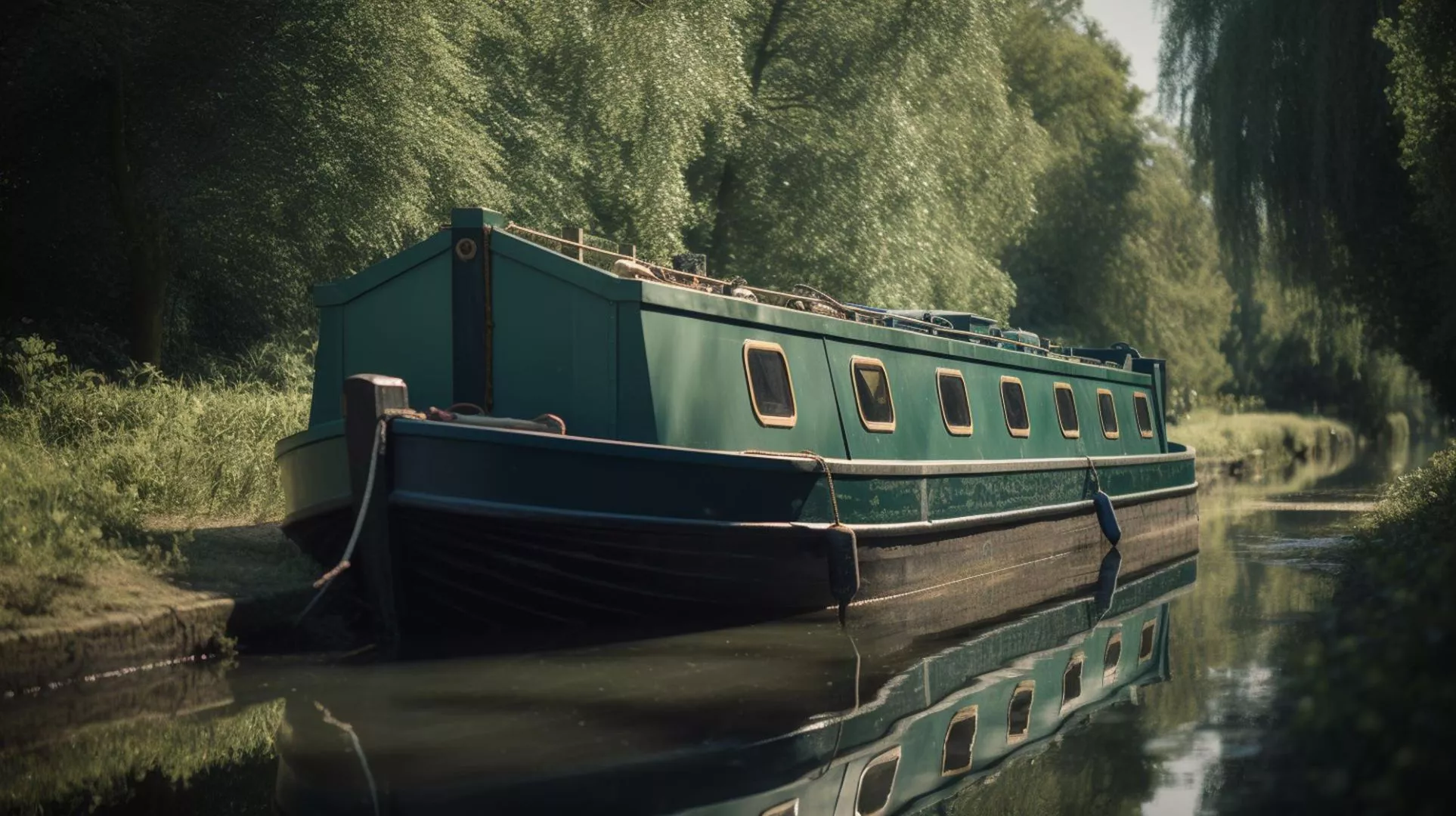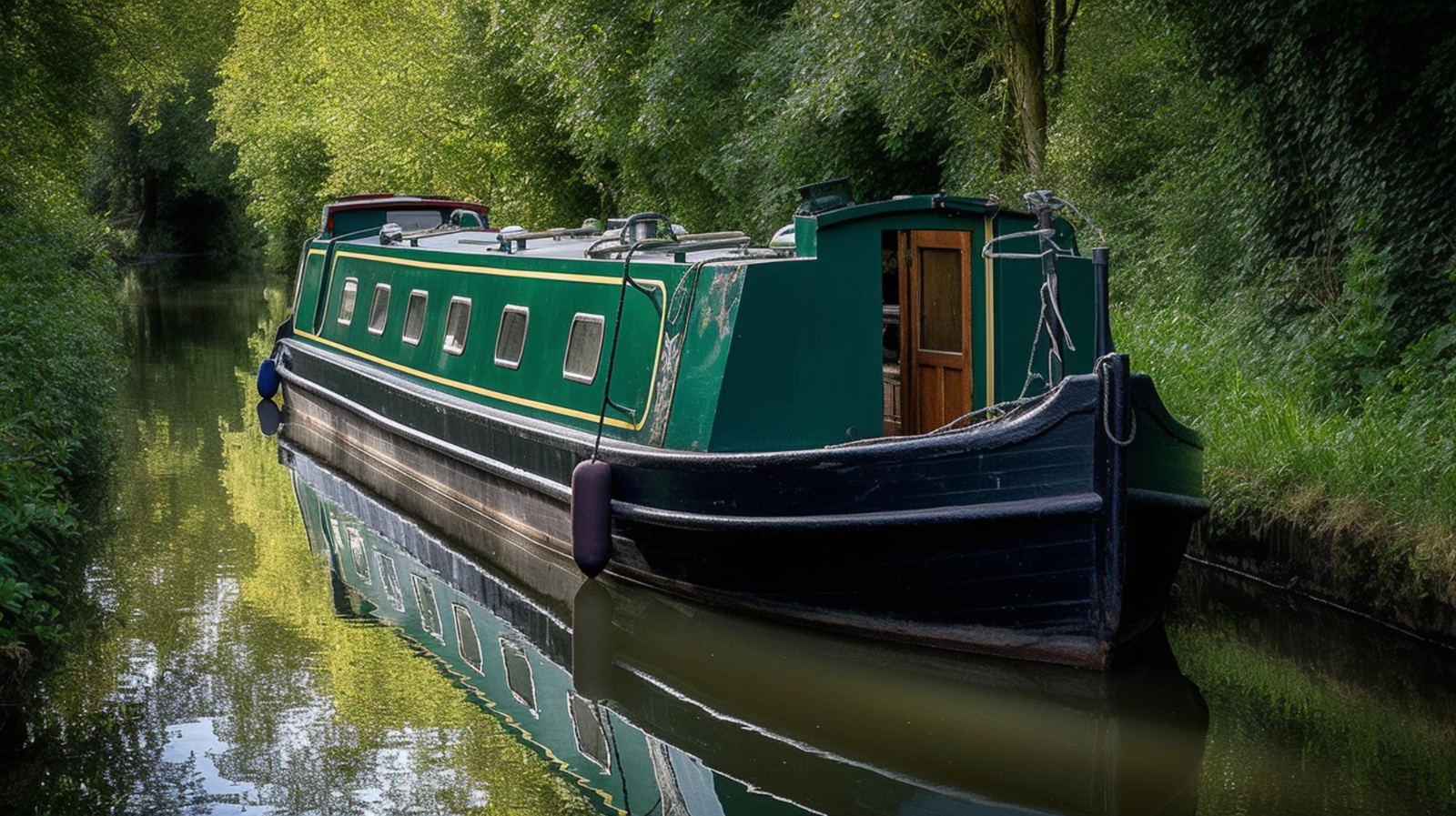How long can you stay in one place on a canal boat? Learn how long you can anchor in one spot while enjoying a canal boat holiday. Lady Teal Ltd offer luxury canal boat cruises in Yorkshire Dales and Lancashire. Discover the freedom and flexibility of canal boat travel and make the most of your waterside retreat. Explore more now!
Can I moor anywhere I want for as long as I want?
The allure of a canal boat holiday comes with the desire to explore at one's own pace, but mooring regulations must be heeded, taking into account the needs of fellow canal users. The Canal and River Trust (CRT) is entrusted with managing the waterways, including some rivers, ensuring a harmonious experience for all.
In the past, living on a boat was sometimes seen as an avenue to avoid rent and rates, but it has also attracted individuals seeking a simpler, more connected lifestyle with nature. Recently, due in part to a scarcity of affordable housing, there has been a notable rise in liveaboard boats, particularly in certain areas.
This increase has led to challenges within the system, including difficulty finding convenient moorings for leisure boaters, as short-term visitor moorings often accommodate long-stay liveaboards. Unsightly long lines of boats have also raised concerns among canal users and local residents, placing extra strain on local services and facilities, which has garnered attention from local authorities.
To address these issues, the CRT collaborates with local groups, including boat dwellers, to seek solutions that benefit everyone involved, especially in areas with high boat populations.
In addition to managing the waterways, the CRT seeks to sustain income by requiring boat owners to pay for a licence, with moorings costing over £2,000 per year. This approach ensures that all canal users contribute to the expenses of maintaining and operating the canals, securing their accessibility for leisure and exploration.
How can I find a place to live aboard my boat?
Residential moorings for long-term boat living are limited in supply, particularly in major cities. Managed by the Canal & River Trust and The Environment Agency, some exist, along with private options at boatyards and marinas. It's often easier to purchase a boat with a residential mooring rather than obtaining them separately.
Explore the area, talk to boat residents, and inquire at boat yards to find leads. The Canal and River Trust may also assist in locating residential moorings. In cities like London, floating accommodations are advertised through conventional property channels. Securing a residential mooring requires patience and research, but the unique lifestyle makes it worthwhile.
Continual Cruising

Continual cruising along inland waterways holds an irresistible charm for many, driven by various enticing factors.
One of the benefits of continual cruising is its cost-effectiveness, as it involves minimal mooring fees, making it a budget-friendly choice. Moreover, this lifestyle offers unparalleled freedom, allowing boaters to select destinations and move at their own pace, unrestricted by rigid schedules. Additionally, frequent movement aids in spotting and addressing maintenance issues promptly, ensuring a smoother journey.
However, continual cruising comes with its set of challenges. The increased fuel consumption during frequent travel results in higher fuel usage compared to extended stationary stays. Boaters must invest time and effort in route planning, even during adverse weather conditions. Finding suitable mooring spots with essential amenities can also be uncertain at times.
For those enthralled by perpetual exploration, continual cruising offers an enchanting lifestyle. Most canals permit stays of up to 14 days before moving on (check for exceptions on signage).
Residential Mooring
Residential mooring appeals to those seeking a settled lifestyle, distinct from the constant movement of continual cruising, with its own advantages.
With residential mooring, you have assured access to vital amenities like water and toilets, easing cassette emptying concerns. The friendly boating community fosters camaraderie.
Once comfortably moored, you enjoy stability for potentially extended periods, with the freedom to set off on new journeys.
Consider potential costs, as sought-after areas can carry high prices, doubling those in the North compared to London. Long-term moorings may involve waiting, and cancelling early could incur charges.
The UK's canal network includes 130 canals, 2,200 miles, and rivers, constituting 15% of inland waterways, offering ample mooring space.
Options range from locks to marinas, each with specific rules and services, some incurring additional charges.
Residential mooring offers a stable, community-oriented lifestyle, with factors like costs and availability to be considered alongside unique offerings in various mooring spaces.

What are the different types of mooring?
The intricate network of canals and rivers that crisscross the United Kingdom offers a diverse range of mooring options for boaters.
Whether you're seeking a short-term stopover, a more semi-permanent arrangement, or a cosy spot to spend the winter months, the canal system caters to various preferences and requirements. Let's delve into the different types of moorings available to boaters and explore the unique experiences they offer.
Short Stay Mooring
Short-stay moorings, as the name suggests, are designed for brief stopovers along your boating journey. The duration of stay at these moorings varies from place to place, generally ranging from 2 to 7 days. Short-stay moorings are ideal for boaters who want to explore a particular area, visit local attractions, or simply take a break during their travels.
As each location may have different time limits for short-stay moorings, it's crucial to check the signage and local regulations to ensure compliance.
During a short stay, boaters can relish the freedom of exploring different regions, experiencing the diverse landscapes and vibrant communities along the waterways. Whether it's a quick escape to a picturesque village or a stopover in a bustling city, short-stay moorings provide boaters with ample opportunities for adventure and relaxation. However, it's essential to plan the itinerary carefully, considering the time constraints, to make the most of each stop.
Long Term Mooring
For boaters seeking a more settled lifestyle without committing to a residential mooring, long-term moorings offer an excellent compromise. These moorings provide boaters with the convenience of an extended stay, ranging from 3 months to several years. Long-term moorings allow individuals to immerse themselves in a specific location, explore the surrounding area in-depth, and form a sense of community with fellow boaters.
Long-term moorings present a unique opportunity to truly embrace the boating lifestyle, as boaters become an integral part of the local boating community.
The experience allows for deeper connections with like-minded individuals, forging lasting friendships and sharing memorable moments. Boaters can explore the nearby attractions, enjoy leisurely strolls along the towpaths, and relish the comfort of knowing they have a reliable and welcoming base to return to.
Winter Mooring

Winter moorings cater specifically to the colder months, typically spanning from November to March. As boating activity tends to decrease during winter, some canals and waterways offer winter mooring options to provide boaters with a secure place to stay during this period.
Securing a winter mooring usually requires obtaining a specific license, and boaters need to book their spots online on a first-come-first-served basis.
Winter moorings offer a tranquil and serene boating experience during the colder season, allowing boaters to navigate the canals while avoiding icy conditions. For those who cherish the peace and solitude of the waterways during winter, these moorings provide the perfect opportunity to connect with nature and indulge in the beauty of the canals, adorned by the winter's enchanting allure.
Waterside Mooring
Waterside moorings, directly managed by the Canal and River Trust, are designed to accommodate boaters seeking extended stays in one location. These moorings can be either permanent or long-term, offering boaters the opportunity to settle in one place for a more extended period.
Waterside moorings are often equipped with various facilities and amenities, depending on the specific location. These amenities may include car parking, showers, electricity, and more, enhancing the boating experience for those choosing to stay for more extended periods.
Waterside moorings provide boaters with the convenience of readily available services, allowing them to focus on their boating journey and immerse themselves in the surrounding beauty.
Boaters can make the most of the amenities and explore the local attractions, from charming villages to historical landmarks, all while being embraced by the comforting waterside atmosphere.
Each type of mooring presents unique advantages and experiences for boaters, allowing them to tailor their journey to their individual preferences and needs.
The flexibility of the canal network empowers boaters to create a personalised experience, reflecting their unique desires and aspirations on the ever-changing waterways of the United Kingdom.
Whether it's a leisurely short break or a more profound boating holiday, the different types of moorings contribute to the rich tapestry of experiences that make boating along the canals and rivers an unforgettable adventure.
Ready to embark on a remarkable canal boat adventure through the picturesque landscapes of Lancashire and the Yorkshire Dales? Experience the beauty of these regions like never before with our exceptional canal boat holidays. Book your voyage today and let unforgettable memories flow.
